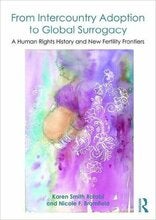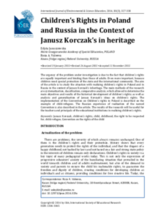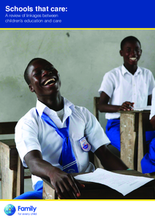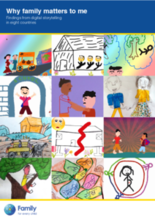Displaying 111 - 120 of 150
Extracting on chronologic data, this book discusses the politics and practice of intercountry adoption starting with the state international adoption to in the 1950s continuing to present-day adoption practice and protections.
This study examined whether interventions in Russian Baby Homes promoting warm, sensitive, and responsive caregiver-child interactions and relationships would be associated with advantages in those children’s behavior years after they transitioned to family care.
This news article from the BBC is about a small orphan village south of Moscow, which has been experimenting with what the founders think may be a novel solution to support both foster children and the families who take them in.
This news article from The Moscow Times shares the stories and lessons learned by Russian families who experienced the adoption process.
This paper examines the notion of “unaccompanied and separated children” of Russia.
The aim of this article is to study the situation on realizing children’s rights in Poland and in Russia in the context of Janusz Korczak’s principles.
This report presents the key findings of a scoping study on the links between education and children’s care. The study involved a literature review in English, French and Spanish; key informant interviews; and consultations with 170 children, carers, teachers and other stakeholders in Guyana, India, Russia and Rwanda.
This report examines what family means to children and adults in the following countries: Brazil, India, Guyana, South Africa, Egypt, Mexico, Russia, Kenya. The storytellers use evidence from 59 short films made using digital storytelling technique.
This article discusses the concept of "Unaccompanied and Separated Children" and how this concept is applied in Russian law.
This article studies different medical and psychological models of orphanhood and the effects these models have on the resiliency of orphanhood.




